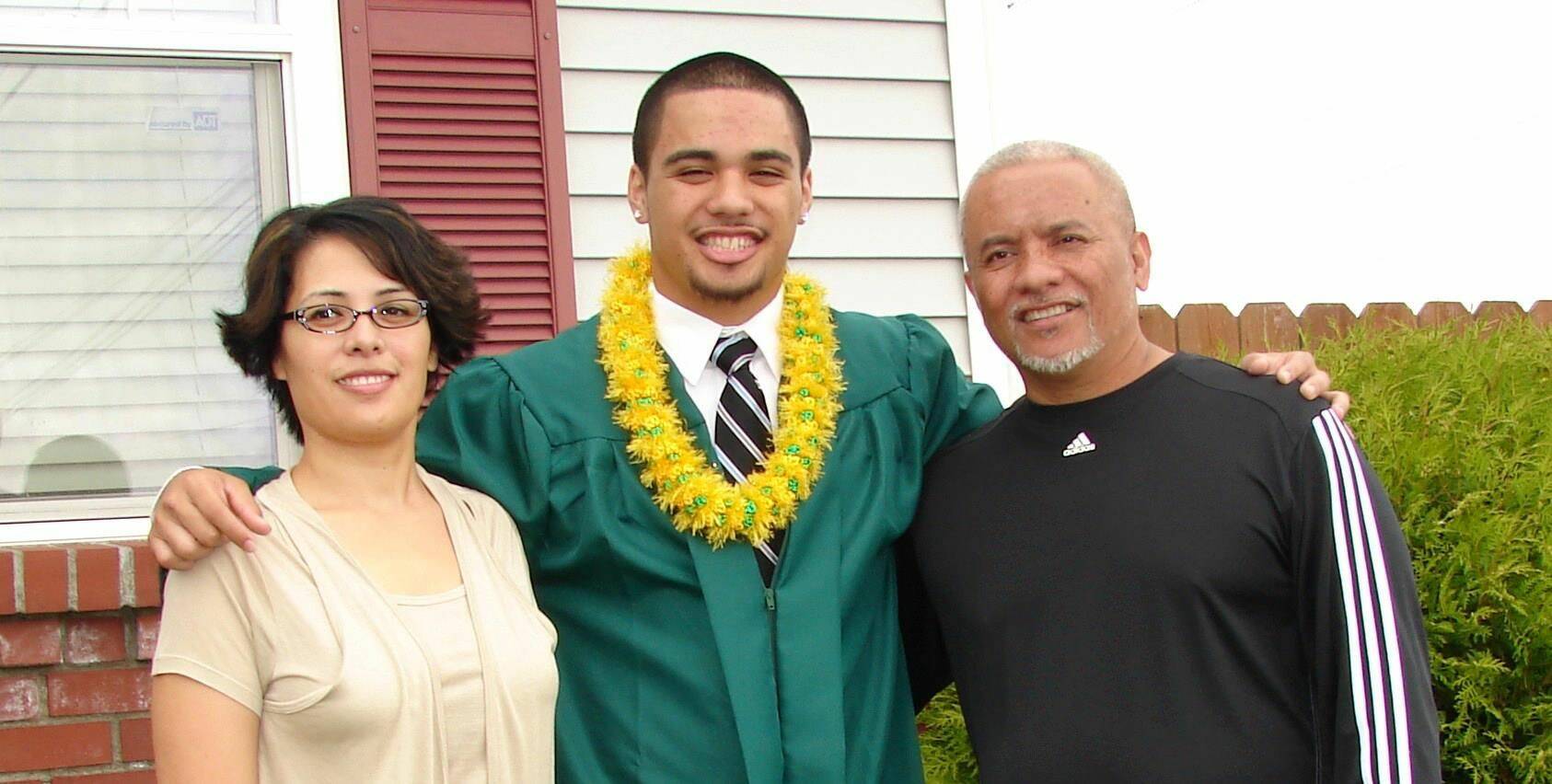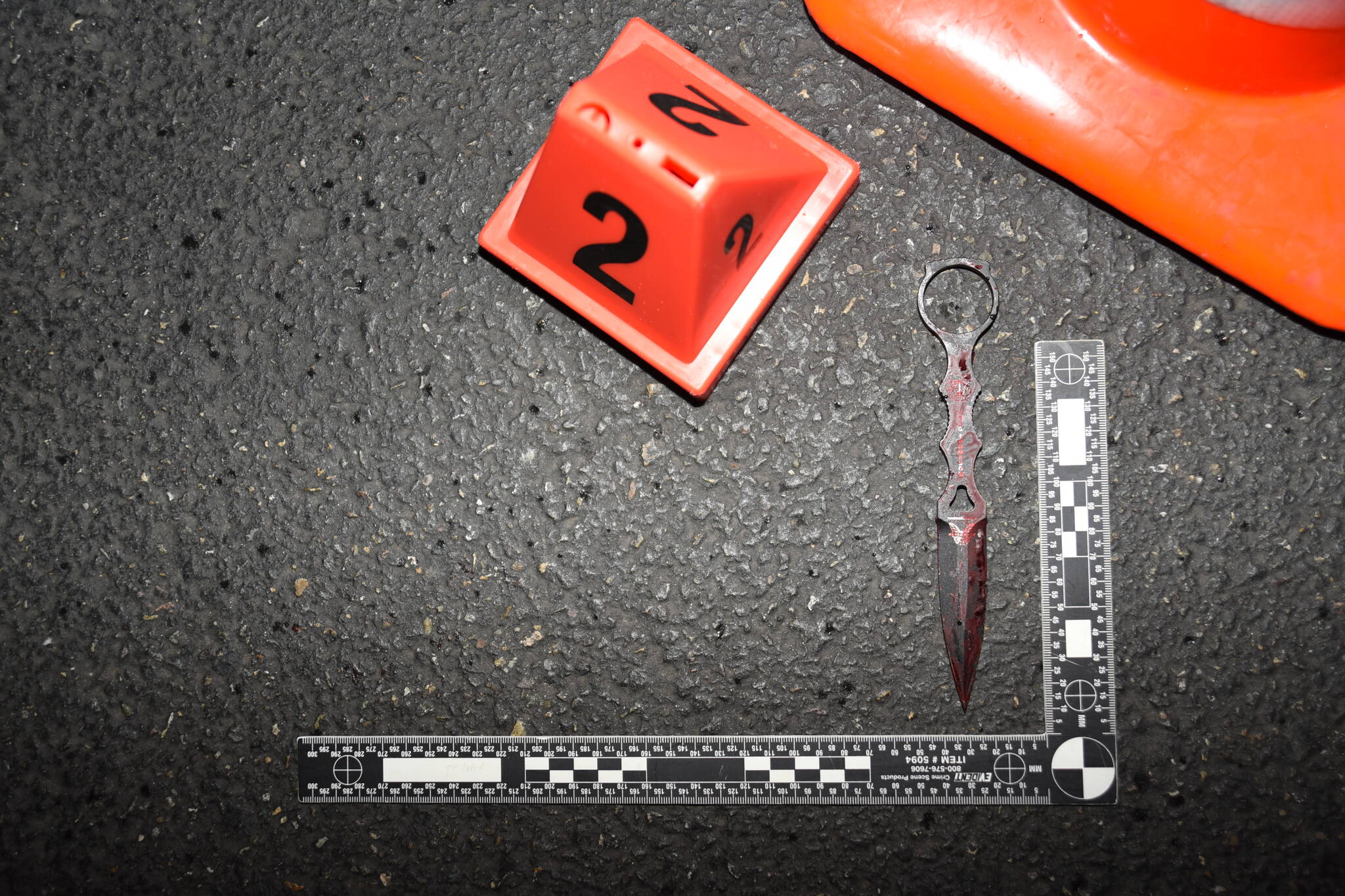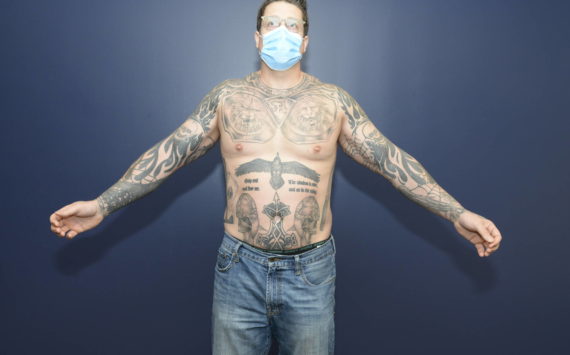The family of Enosa Strickland Jr., a 26-year-old man shot and killed by Auburn police officer Kenneth Lyman in 2019, is suing Auburn in federal court for wrongful death, according to the family’s attorney.
The lawsuit, filed on April 20 in the U.S. District Court for the Western District of Washington, claims wrongful death and the violation of civil rights. It also faults the City of Auburn for negligence and deliberate indifference in training its officers.
This is the second lawsuit against the City of Auburn regarding the actions of officer Kenneth Lyman filed this year. In January, Peter Manning filed a lawsuit against the city because Lyman crashed a SWAT van into Manning’s work truck, injuring Manning, and then fled the scene.
The Strickland family lawsuit claims the Auburn Police Department has a history of tolerating excessive force by its officers. The City of Auburn is liable for the damages caused to the Strickland family because of its failure to properly train and supervise officer Lyman, according to the lawsuit.
Auburn Mayor Nancy Backus and Auburn Police Chief Mark Caillier declined to comment on this story.
In 2020, Lyman made $118,178 according to govsalaries.com, and is currently employed with the Auburn police force.
A memo sent from Snohomish County Prosecuting Attorney Adam Cornell regarding his investigation into the shooting on Feb. 21, 2021, provided additional information about the lawsuit. Cornell ultimately decided Lyman’s use of deadly force was justified, according to the memo.
On May 20, 2019, Enosa Strickland Jr.’s ex-girlfriend called the police to report that Strickland Jr. was tapping on her apartment door and refusing to leave, according to the memo.
Just before 1 a.m., police officers Kenneth Lyman and Derek Morse were dispatched to the apartment complex near Lake Tapps Parkway East. When they arrived, they found Strickland Jr. sitting in his car in the parking lot, according to the memo.
Officer Lyman spoke with the caller and determined that Strickland Jr. had not committed any crime, according to the memo. However, the police officers thought that Strickland Jr. was likely intoxicated, so they made him call his mom to pick him up.
While they were waiting for Strickland Jr.’s mother to arrive, the three men chatted and the officers said Strickland Jr. was pleasant and relaxed, according to the memo. His ex-girlfriend, who was listening through an open window, said in the memo that the encounter was non-confrontational at that point.
The officers claim Strickland Jr. walked toward Lyman with his fist raised and fearing he would be assaulted, Lyman reportedly hit Strickland Jr. in the face without warning and tackled him to the ground, according to the memo.
After Strickland Jr. was tackled, both Lyman and Morse were on top of Strickland Jr., who was laying on his stomach on the ground, according to the memo. Lyman was on Strickland Jr.’s shoulders and Morse was on Strickland Jr.’s back.
The officers allege that Strickland Jr. continued to fight them despite being pinned on the ground, according to the memo. Lyman claimed Strickland Jr. grabbed a knife from Lyman’s chest pocket and was pressing it against Lyman’s leg, according to the memo.
Lyman was carrying is a fixed blade dagger-style knife that was unauthorized, improperly stored and illegal for Lyman to carry, according to the lawsuit. The Auburn Police Department manual only allows officers to carry a folding pocketknife. Lyman was in violation of his own department policy by carrying this dagger, according to the lawsuit.
Further, the lawsuit argues Strickland Jr. never actually held the dagger and the officers used the simple presence of Lyman’s dagger to justify shooting Strickland Jr.
The officers reportedly told Strickland Jr. to drop the knife or he would be shot, and the officers claim Strickland Jr. didn’t drop the knife. Lyman then let go of Strickland Jr.’s arm to draw his pistol and attempted to shoot Strickland Jr., but his gun malfunctioned, according to the lawsuit.
Lyman reportedly cycled another round and shot Strickland Jr. in the back of the head point-blank, killing him while he was face-down on the ground.
Strickland Jr.’s ex-girlfriend heard the entire incident unfold and told investigators that when police told Strickland Jr. to drop the knife, Strickland Jr. responded, “what knife?”
She also said after they issued the command to drop the knife, she heard something metal hitting the ground — which was likely the knife — followed by a gunshot moments later, according to the memo.
The officers claim the knife was in Strickland Jr.’s hand after he had been shot point-blank in the back of the head, according to the memo.
Although the officers said Strickland Jr.’s body was limp after being shot in the head, Lyman said he grabbed the knife from Strickland Jr.’s hand and tossed it away while Morse put handcuffs on Strickland Jr., according to the memo.
Strickland Jr.’s parents arrived on the scene minutes later at 1:33 a.m. and found their son lying on the ground, handcuffed with blood dripping from his head, according to the lawsuit.
The lawsuit claims the family is entitled to damages due to the emotional pain and suffering officer Lyman caused by using excessive force against Strickland Jr.









